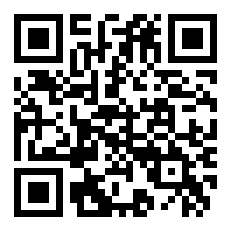Intraocular Pressure With RIntraocular pressure with rebound tonometer at different gestational ages of preterm African babiesebound Tonometer At Different Gestational Ages Of Preterm African Babies.
Keywords:
Preterm, Intraocular pressure, African Babies, Rebound tonometerAbstract
Background: Normative values of intraocular pressure (IOP) in different ages of children provide an invaluable diagnostic and monitoring tool in the practice of ophthalmology.
Aim: To determine the intraocular pressure values using a rebound tonometer at different gestational ages of preterm african babies and to correlate with the birth parameters.
Methods: A hospital-based cross-sectional study carried out at the University of Ilorin Teaching Hospital, Ilorin, Nigeria. Ethical clearance was obtained from the Ethics and Research Committee of the Hospital while informed and written consent was obtained from individual parents/guardians. The minimum calculated sample size was 96 using Fisher’s formula. The babies were recruited consecutively until the desired sample size was obtained. Healthy preterm babies delivered before 37 weeks of gestational age were enrolled in the study in their first week of life while unstable babies, babies with congenital anomalies, or uncertain gestational age were excluded. IOP measurements were taken in upright positions using an Ic100 Model TA011 I-Care tonometer and the average for each eye was recorded. The association between intraocular pressure and birth parameters recorded were evaluated. All measurements were taken by the principal investigator.
Results: Among the 96 preterm neonates were 46 males and 50 females with a male: female ratio of 1:1.1. The mean±standard deviation (SD) and the range of birth parameters were gestational age: 32.8±2.29 weeks, 26-36 weeks; birth weight: 1.71±0.41kg, 0.75-2.73kg; birth length: 40.66±3.08cm, 32.0-48.0cm; and occipitofrontal circumference: 30.28±2.52cm, 23-34.0cm. Figure 1 shows the distribution of mean IOP across gestational ages in preterm neonates
at the first week of life. The mean±SD and range of IOP were 12.67±2.94 mmHg, 4.00-19.00 mmHg in the right eyes and 11.87±3.32 mmHg, 3.00–19.00 mmHg in the left eyes. As shown in table 1, there was no correlation between the IOP
and birth parameters (birth length, birth weight, gestational age, occipito-frontal circumference) in the preterm neonates.
Discussion: The mean IOP findings in this study were higher than the mean IOP values of 10.13±2.74 mmHg in the right eye and 10.17±2.50 mmHg in the left eye documented by Spierer et al1 who measured IOP with Pulsair tonometer in 53 Israeli premature infants (mean post conception age (PCA), 37±2.2 weeks). The difference in IOP values may be due to the variation in sample size and mean PCA. This study indicates that IOP showed no correlation with birth weight, birth length, gestational age, and occipito-frontal circumference in preterm neonates which are in tandem with other previous studies2,3,4.
Conclusion: This study provides useful normative data on IOP among African preterm babies and shows no correlation between the IOP and birth parameters. The IOP values found in this study were lower than those found in other parts of the world.
References
Spierer A, Huna R, Hirsh A, Chetrit A. Normal intraocular pressure in premature infants. Am J Ophthalmol. 1994; 117:801-803.
Tucker SM, Enzenauer RW, Levin AV, Morin JD, Hellmann J. Corneal diameter, axial length, and intraocular pressure in
premature infants. Ophthalmology. 1992; 99:1296-1300.
Spierer A, Huna R, Hirsh A, Chetrit A. Normal intraocular pressure in premature infants. Am J Ophthalmol. 1994; 117:801-803.
Uva MG, Reibaldi M, Longo A, Avitabile T, Gagliano C, Scollo D et al. Intraocular pressure and central corneal thickness
in premature and full-term newborns. J AAPOS. 2011; 15:367-369.
Downloads
Published
How to Cite
Issue
Section
Categories
License
Copyright (c) 2023 Transactions of the Ophthalmological Society of Nigeria

This work is licensed under a Creative Commons Attribution-NonCommercial-NoDerivatives 4.0 International License.


















